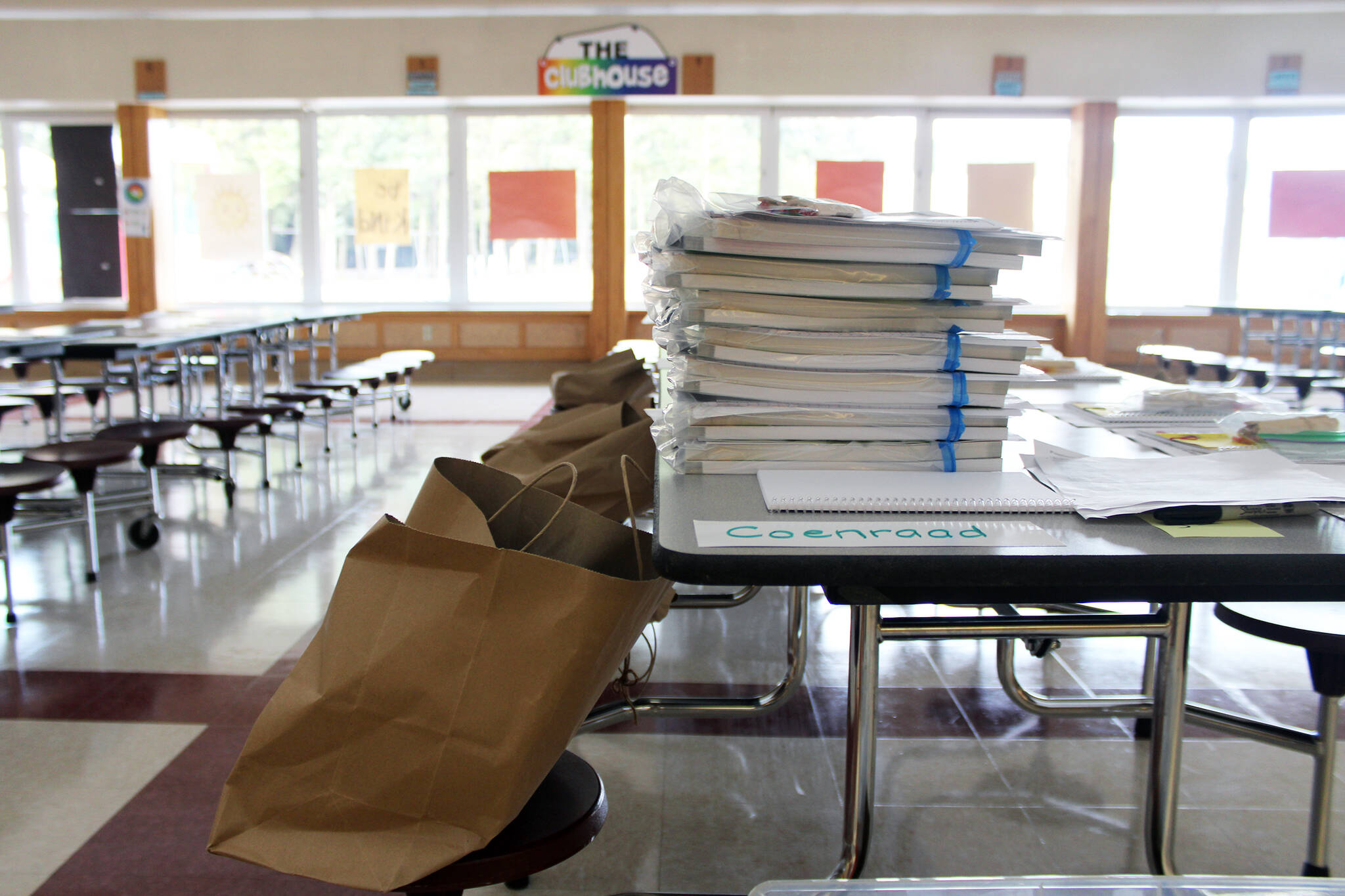Riverbend Elementary School is now officially Kax̱digoowú Héen Elementary School after the Juneau School District Board of Education unanimously approved the change Tuesday night. But getting there proved far more difficult than pronouncing the school’s new name is for some people.
An evening where many participants planned to celebrate the newest renaming of a Juneau school with the Tlingit-gifted name turned into a contentious multi-hour debate full of anger, suspicion and “loaded” words. While the verbal bruising suggests historical tensions between the area’s peoples are far from dormant, for some local Alaska Natives the uncomfortable debate was cause for celebration as well.
“When people are uncomfortable that means everyone is growing together,” Jamiann S’eiltin Hasselquist, who said as a Tlingit she experienced a lot of racism growing up, during the public comment period of the debate. “These feelings are in our DNA and we can change that.”
The renaming is the fourth in modern times for a Juneau school although — unlike previous changes that combined the existing and traditional names such as Juneau-Douglas High School: Yadaa.at Kalé — Riverbend is no longer part of the elementary school’s name. The new name Kax̱digoowú Héen, which translates to “Going Back to Clear Water” in English, and is also the name of a trail alongside the school where an ancient fish trap existed that took supernatural guidance and strength to find.
That was the linchpin for Tuesday’s night’s debate, since some board members spoke in favor of combining the names as a symbol of community unity, among other reasons. Countering that argument were Riverbend administrators and Natives involved in the process that began in 2019 who saw it as disrespectful treatment of a gift.
“I feel that you’re trying to muddy our gift and use it the way you want to use it rather than the way we gave it to you,” said Mary Nilkhaagugéi Marks, a former Juneau School District employee and Anchorage School Board member.
The Juneau school board opted for a two-step process to approve the renaming: first to accept the gift of the Tlingit name, then a separate action deciding how it would be implemented. But the discussion quickly heated up when Board Member Brian Holst proposed allowing a merger of names rather than a replacement.
“We are shifting the game,” Amber Frommherz, another board member, said by way of objection. “I am just wanting to state the point here is to accept the gift. This is not the time for us to do house cleaning in our policies. It quite honestly feels disrespectful.”
Holst said his understanding from a review of the process is accepting the Tlingit name doesn’t negate the existing name and “whether people would like this gifted name to be chosen as the single name, that’s a fair question that should be considered separately.” But choosing the gifted name as the single name suggested another name couldn’t be gifted in the future.
Lillian Petershoare, a JDHS graduate and regional tribal relations program manager for the U.S. Forest Service for 12 years, said efforts to cling to the school’s Riverbend name suggested a reluctance to move forward.
“Having the Western name is to be looking in your rear-view mirror, not quite willing to let go of colonial names,” she said.
Holst, after more than an hour of discussion where virtually all public speakers spoke in favor of using only the Kax̱digoowú Héen name, withdrew his suggestion and made a formal motion to “ “graciously accept the gifted name.”
The end of that lengthy “housekeeping” brought the board to the final step of approving a new name. Elizabeth Pisel-Davis, the school’s principal, told the board 92% of staff members voted in favor of the Tlingit renaming and “this request is one small part of a much longer journey.”
“I know that there have been some concerns about the pronunciation and, as one student says, ‘don’t be concerned, just say it with your heart,’” she said.
The three-year process of getting to the final stage was a transitional experience for Emil Mackey, a school board member who said he initially opposed the renaming and now supports the change to include only the Tlingit name. But he said the evening’s discussion reveals there is still plenty of distrust and bad feelings, and moments such as when board members were referred to as colonialists hurt because “we all want this to work.”
“I also want people to understand the divisions brought in some very passionate debate,” he said. “For those that opposed this name I heard you…maybe my story of how I got here will make you understand why it’s important as well.”
The late-blooming controversy prompted Holst to raise another concern about the district lacking an official policy for name changes. He said that while “this is a happy night for us (and) I think we should all be pleased we accepted without any reservation this gift,” he proposed postponing the actual changing of the name until the board implements a name-change policy.
His motion failed to get a second from another board member that would allow it to be considered. The unanimous vote approving the name change occurred shortly afterward.
Debate about the issue lasted so long the board was forced to postpone virtually all of its remaining agenda due to a mandatory time limit, including adapting a policy protecting the rights of individuals to use cultural regalia at district events and celebrations. But Sealaska Corp. Board Chair Joe Nelson, among the many who testified and watched the entire meeting via Zoom, said in one of the final public comments he agreed with those emphasizing the celebratory aspect of the evening’s outcome.
“This has been better than tuning into Netflix this evening,” he said. “Any level of discomfort that is happening, we embrace that.”
• Contact reporter Mark Sabbatini at mark.sabbatini@juneauempire.com.

